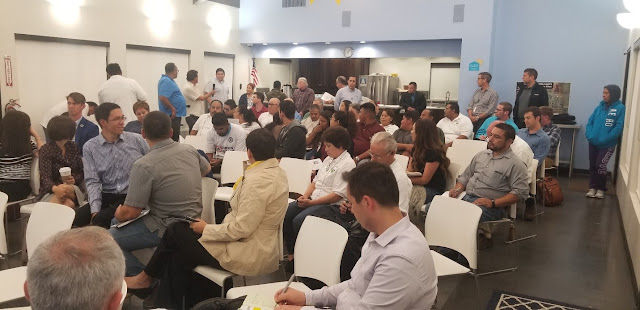CARB Kicks Off Lost Hills Air Quality Study
On October 29, CARB hosted an
evening community meeting in Lost Hills, CA to discuss how an air monitoring study
in the rural community can help better characterize local air quality. Lost Hills is one of many communities in
California located near oil and gas extraction fields, and the first selected
by CARB for the Study of Neighborhood Air near Petroleum Sources (SNAPS), an
effort to better understand air quality in these communities. This intensive study
will measure toxic air contaminants, volatile organic compounds, particulate
matter, methane, metals, and polycyclic aromatic hydrocarbons over three to
four months in Lost Hills. The SNAPS
program was created in response to community member’s requests for air
monitoring and recommendations in a report recently published by the California
Council on Science and Technology.
The kickoff meeting was
well-attended, and CARB staff discussed the purpose and methodology of the
SNAPS program with community members and other interested stakeholders. Attendees included community members and
organizers, industry representatives, local leaders, and academics. Several potential air monitoring sites were
presented, and attendees shared their thoughts on these locations. A substantial
portion of the meeting was dedicated to collecting feedback and answering questions.
The questions and concerns raised by local community members and stakeholders
will be used to improve the study and uniquely tailor the program to Lost Hills.
Criteria pollutant
data will be published as it is generated online, and all data will be analyzed
and presented in a final report after monitoring is complete in Lost
Hills. CARB staff will then continue
SNAPS air monitoring at additional California communities located near oil and
gas extraction activities.
For questions regarding the SNAPS
program,
please visit the website,
email the SNAPS program, or call (916)
445-1104.

